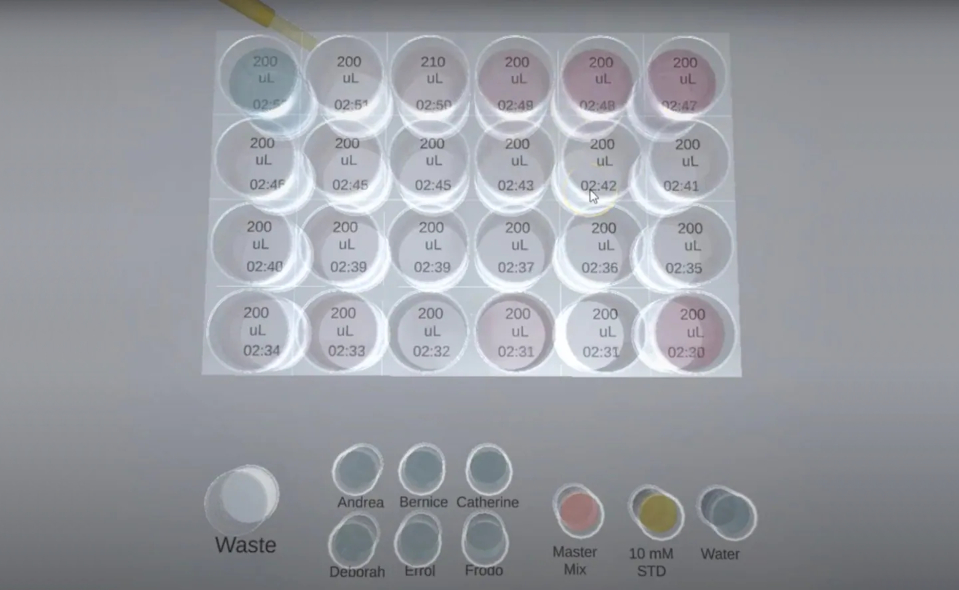Lab Data Generator — WebGL Simulation
The Lab Data Generator is an online WebGL interactive simulation app widely used by students at universities across Australia. Under development since 2019 in collaboration with Professor Gareth Denyer, it enables authentic lab learning at scale: students design 96-well plates, run virtual assays, and analyze the consequences of their decisions in real time.
Client
University partners (AU) · Lead: Prof. Gareth Denyer
Services
WebGL Simulation · Data Generators · Education Tooling
Industries
Higher Education · Biosciences
Date
2019—ongoing
Challenge
Deliver authentic lab experiences that are accessible anywhere. Students design and set up their own 96-well plates, then observe the outcomes of those choices as the experiment unfolds—learning from both successes and mistakes.
In the blood ethanol practical, for example, students interrogate calculations, data robustness, and technique accuracy to assess whether subjects should be convicted (as outlined on labarchives.com). The tool turns abstract protocol steps into consequences you can test, measure, and discuss.
UX — UI Interaction Techniques
Initial Prototype



Solution
We use modern 3D/WebGL rendering and purpose-built generators to simulate realistic outcomes, including systematic and random error. 360° video and high-res imagery supplement the real-time app to support courses, events, and online delivery.
Contact us to view the full walkthrough demo of the real-time simulation.
Conclusion
Educational Lab Simulation Tool
The culmination of this project is an educational tool that strengthens experimental troubleshooting through realistic lab simulations. Each session generates unique datasets (including systematic errors) so learners can practice planning, execution, and analysis under authentic conditions.
Utility in Educational Contexts
- Running plagiarism-free assignments
- Encouraging reflective learning
- Real-time decision-making feedback
- Facilitating iterative experimentation
- Data analysis practice
- Validating experimental results
We partner with course coordinators to build data-generators and simulators tailored to specific practicals—going beyond step-by-step rehearsal to immerse students in the end-to-end process: design, execution, analysis, results, and technique limitations.
Key components include the Virtual Glucose Assay and Basic Liquid Handling simulations, which together develop planning, measurement, and critical judgment—advancing experimental competency and scientific thinking.